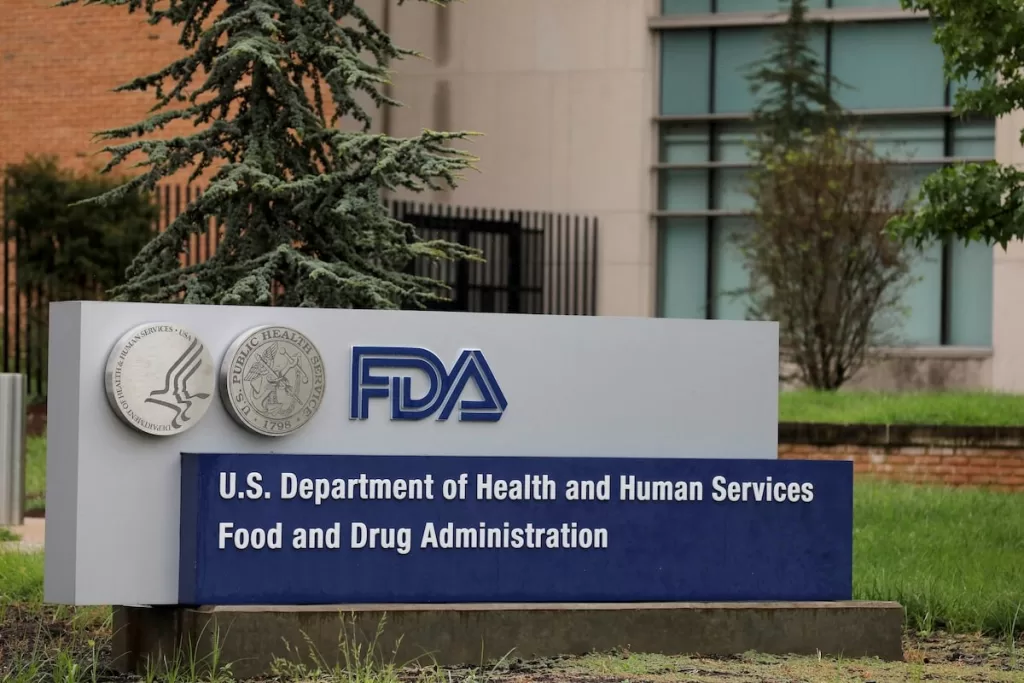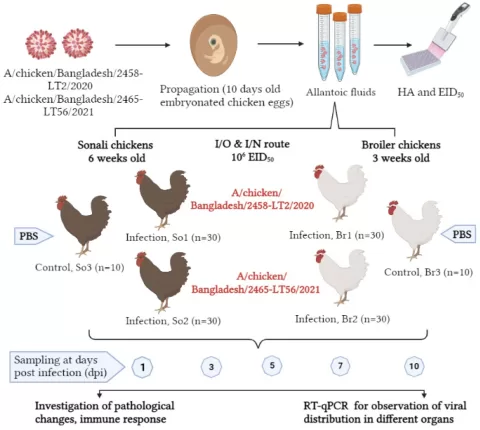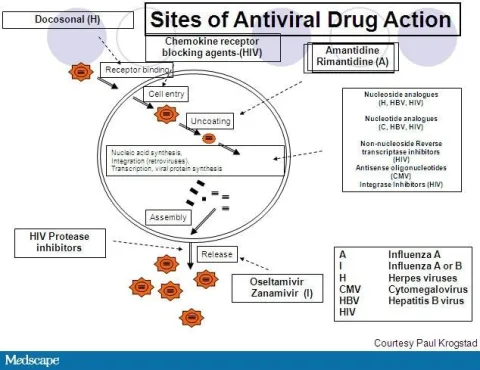The recent cancelation of the FDA flu vaccine meeting has sparked concern among public health officials and vaccine manufacturers alike. Originally scheduled for March 13, the FDA’s Vaccines and Related Biological Products Advisory Committee (VRBPAC) was set to discuss crucial flu vaccine strain selection for the upcoming 2025-26 season. This VRBPAC meeting cancellation raises critical questions about the timing of FDA vaccine recommendations and how they may impact influenza vaccine availability in the Northern Hemisphere. As the urgency grows amidst a severe flu season, experts emphasize that the lack of updates could hinder the production of targeted vaccines, potentially jeopardizing public health. With a backdrop of rising flu cases, the implications of this delay underscore the importance of timely vaccine updates.
The holder of public health standards, the Food and Drug Administration (FDA), recently faced a significant disruption with the cancellation of an important advisory board meeting aimed at determining the next season’s flu vaccine composition. This notable postponement of the VRBPAC meeting is critical, as it directly influences the decision-making process regarding which strains of the influenza virus will be included in the forthcoming shots. Public health experts fear that such delays could result in missed opportunities for effective prevention measures during a year already marked by high flu-related hospitalization rates. Moreover, the cancellation coincides with ongoing discussions surrounding vaccine supply chain issues and funding disputes concerning a COVID vaccine contract delay, shedding light on a broader landscape of vaccine-related challenges facing the healthcare community.
Impact of the FDA Flu Vaccine Meeting Cancellation
The cancellation of the upcoming VRBPAC meeting by the FDA has raised significant concerns regarding the timely production and distribution of next season’s flu vaccines. This cancellation means that vaccine manufacturers might not receive the necessary recommendations for the flu strains that will be prevalent in the upcoming season. Typically, VRBPAC’s input is vital for guiding the composition of the vaccines, particularly since it takes months to produce and distribute these vaccines across the country.
Experts, including Tina Tan, President of the Infectious Diseases Society of America, have emphasized that such cancellations can have dire consequences for public health. The lack of timely strain selection could hinder the ability of vaccine manufacturers to provide effective vaccines, potentially leading to increased morbidity and mortality rates during the flu season. As the flu season approaches, the absence of a VRBPAC meeting thus casts a shadow over the adequacy of preventive measures available to the public.
Effects on FDA Vaccine Recommendations and Public Health
The FDA’s process for selecting the appropriate flu strains for vaccines each season relies heavily on the recommendations made during the VRBPAC meetings. With the March 13 meeting canceled, there is a significant possibility that FDA vaccine recommendations may be delayed, impacting the production schedule for the vaccines intended for the Northern Hemisphere. Consequently, this situation could affect the distribution timeline, leading to a shortage of vaccines when they are needed most.
Given that this flu season has already been classified as particularly severe, such delays in vaccine recommendations could exacerbate the public health issues we face. Recent reports have shown that thousands of hospitalizations and deaths are linked to the ongoing flu epidemic this year. Thus, without timely FDA guidance, the risks associated with the flu may rise, making vaccination efforts essential to reduce flu-related complications in the population.
Potential implications of this delay might encourage a heightened focus on the importance of getting vaccinated, especially among vulnerable populations such as the elderly and children, who are at greater risk of severe flu outcomes. In light of these facts, understanding the impact of regulatory meetings like VRBPAC is critical for ensuring effective seasonal flu vaccinations.
Current Trends in Influenza Vaccine Effectiveness
Recent data from the CDC highlights that the 2024-25 flu vaccine has shown varying degrees of effectiveness across different age groups. Interim vaccine effectiveness (VE) statistics indicate that while the vaccine scored modest levels of protection from infection, it has been substantially more effective at preventing hospitalizations. Children, in particular, exhibited higher effectiveness rates against flu-associated medical visits and hospitalizations, echoing the necessity of vaccination during this high flu season.
The increase in reported hospitalizations due to flu underscores the importance of getting vaccinated, especially during periods of high flu activity. This season’s vaccine has demonstrated its value in reducing severe outcomes. As such, health experts continue to advocate for increased vaccination coverage as a crucial measure to manage influenza spread, especially in light of the ongoing challenges posed by an already overwhelmed healthcare system during one of the worst flu seasons in years.
Future of Vaccine Strategizing Amid Uncertainties
As we look towards future influenza seasons, the cancellation of the FDA’s VRBPAC meeting introduces considerable uncertainties in vaccine strategizing. Historically, these meetings assist in aligning the vaccine production process with the anticipated circulating strains, ensuring that manufacturers can prepare in advance. This year’s abrupt cancellation may indicate the necessity for a reevaluation of how these meetings operate and adjust to unforeseen circumstances to maintain public health protocols.
Moreover, the recent strain on resources due to vaccine-related meeting cancellations calls attention to the need for transparent communication from health authorities. Stakeholders should focus on contingency planning to mitigate the impacts of such cancellations in future years. Adapting to these challenges is vital to preserve the effectiveness of vaccination strategies in combating influenza and ensuring the public receives timely access to lifesaving vaccines.
Interplay Between Flu and COVID Vaccine Developments
The intersection between flu and COVID-19 vaccinations is becoming increasingly significant as health authorities strive to manage both respiratory diseases simultaneously. With the recent cancellation of VRBPAC meetings and delays in the COVID vaccine contract, public health officials must address the implications on flu vaccine availability. The synergy between flu and COVID vaccination strategies could play a crucial role in mitigating the impact of respiratory illnesses, particularly during peak seasons.
As the nation navigates complex challenges regarding vaccination rollout, it becomes imperative to ensure that the messaging around flu and COVID vaccines remains clear and cohesive. Public awareness campaigns should emphasize the importance of being vaccinated against both illnesses, particularly for those at heightened risk. Attention to this dual vaccination approach could bolster community immunity, ultimately aiming to reduce hospitalizations and mortality associated with these viruses this season.
Global Perspectives on Vaccine Strain Selection
Globally, the World Health Organization (WHO) plays a pivotal role in guiding flu vaccine strain selections. As WHO announces its strain selections for the Northern Hemisphere, it remains critical to ensure that these align closely with the recommendations that would have come from the canceled VRBPAC meeting. This coordination helps maintain consistency and efficacy across the various vaccines used internationally, ultimately aiding in the control of seasonal flu.
As we analyze global vaccine practices, it is essential to recognize the differences in how strain selection processes may affect public health outcomes. Countries may adopt different approaches to strain selection based on local epidemiological data, which could lead to varied levels of vaccine effectiveness in different regions. Thus, understanding the implications of the FDA’s cancelation on both domestic and international vaccine strategies remains essential for devising effective vaccination campaigns in light of global health trends.
Public Concerns Surrounding Vaccine Availability for 2025-2026
The recent cancellation of the VRBPAC meeting has instigated concerns among the public about the availability of flu vaccines for the upcoming 2025-2026 season. Many individuals are left wondering if they will have access to vaccines that are effective against the anticipated flu strains, especially given the ongoing severity of current flu season conditions. Public communication from health authorities will be vital in dispelling fears about vaccine accessibility and effectiveness.
Moreover, this situation underscores the necessity for proactive measures to prepare the healthcare system for challenges related to flu and COVID vaccinations. Clear timelines and public health messaging can mitigate the anxieties surrounding vaccine failure to provide timely vaccinations. As stakeholders work toward enhancing vaccination efforts, transparency about strain selections and corresponding manufacturing timelines will be critical for maintaining public trust in vaccine programs.
Navigating Future Health Regulations Relating to Vaccines
The cancellation of the FDA’s VRBPAC meeting signals a need for reexamination of current health regulations affecting vaccine development and approval processes. Stakeholders, including policymakers and public health experts, should engage in discussions about how to strengthen frameworks around timely strain selections, ensuring that public health remains a priority. This could include guidelines that prevent sudden cancellations and promote adaptability in response to ongoing epidemiological surveillance.
Additionally, there is a critical need to address the apparent tensions surrounding vaccine policies that may risk undermining public confidence in vaccination efforts. Establishing clear protocols regarding advisory meetings and timely communication must remain a focal point in advancing the regulatory landscape for vaccines. Doing so ensures that health authorities remain equipped to respond to potential crises, safeguarding the population’s health against emerging and re-emerging infectious diseases.
Importance of Timely Vaccination Amidst Community Health Challenges
As the flu season continues to surge, the need for timely vaccinations becomes particularly pressing. Recent data reflecting high hospitalization rates and fatality figures further demonstrate how essential it is for individuals to receive vaccinations promptly. Health authorities are urging communities to prioritize flu shots as a preventative measure against severe illness, especially given that this season has been categorized as ‘high severity’ by the CDC.
Ensuring that flu vaccinations remain within reach for all segments of the population is critical. Programs aimed at increasing public access to vaccines, especially in high-risk areas, are necessary to mitigate the effects of this flu season. By enhancing vaccination outreach and support strategies, health departments can effectively combat rising infection rates, ultimately promoting community-wide immunity.
Frequently Asked Questions
Why was the FDA flu vaccine meeting canceled?
The FDA’s Vaccines and Related Biological Products Advisory Committee (VRBPAC) meeting scheduled for March 13, 2025, was canceled without an explanation provided by the FDA. This meeting traditionally focuses on selecting flu vaccine strains for the upcoming season.
What impact does the cancellation of the VRBPAC meeting have on flu vaccine recommendations?
The cancellation may delay vaccine manufacturers from receiving critical strain selection recommendations necessary for producing the flu vaccines for the 2025-26 season. However, the FDA maintains that it will still ensure updated vaccines are available despite this setback.
How does the FDA plan to inform manufacturers about flu vaccine strains after the meeting cancellation?
Despite the cancellation of the VRBPAC meeting, the FDA has confirmed that it will make its flu vaccine strain recommendations public in time to allow manufacturers to prepare the vaccines for the 2025-26 influenza season.
What are the concerns raised by the cancellation of the FDA flu vaccine meeting?
Experts, including the Infectious Diseases Society of America President, express concerns that the delay in the VRBPAC meeting could jeopardize the timely production and distribution of targeted flu vaccines, potentially leading to lost lives that could have been saved through vaccination.
Will the cancellation of the FDA flu vaccine meeting affect the availability of the 2025-26 flu shot?
The FDA has stated that the cancellation of the VRBPAC meeting will not impact the availability of the next season’s flu vaccines. They assure that recommendations will be provided in due time.
What should the public know about the current flu season in light of the canceled FDA meeting?
The public should be aware that this flu season is classified as ‘high severity,’ with significant hospitalizations and fatalities reported. The timely development of effective vaccines is crucial amidst such high activity, which emphasizes the importance of the recommendations typically provided at VRBPAC meetings.
How is the flu vaccine effectiveness being evaluated this season?
In light of the current flu season, recent reports indicate that the 2024-25 flu vaccine has provided varying degrees of effectiveness, showing more promise in preventing hospitalizations than infections. Enhanced vaccination efforts are encouraged to mitigate illness and fatalities during this challenging flu season.
| Key Point | Details |
|---|---|
| Meeting Cancellation | The FDA canceled the March 13 VRBPAC meeting where flu vaccine strains for the 2025-26 season were to be selected. |
| Impact on Vaccine Production | Experts express concerns that this cancellation may hinder the timely production of next season’s flu vaccines. |
| No Immediate Effect on Vaccine Availability | The FDA stated that the cancellation would not affect the availability of next season’s vaccine. |
| Second Meeting Canceled | Another vaccine-related meeting by the CDC was also postponed, reflecting broader concerns about vaccine policies. |
| Current Flu Season Severity | The U.S. is experiencing a high severity flu season with significant hospitalization and mortality rates. |
| Vaccine Effectiveness Data | Interim reports indicate that the current year’s flu vaccine offers modest protection against infection but better protection against hospitalization. |
Summary
The FDA flu vaccine meeting canceled raises significant concerns regarding the timely selection of flu strains for the upcoming season’s vaccines. Without the March 13 meeting, manufacturers may face challenges that could delay the production and distribution of essential flu shots. As the U.S. endures one of its worst flu seasons in over a decade, ensuring efficient vaccine preparation is critical to prevent further illness and fatalities. Commencing communication and scheduling for an alternative meeting is essential to mitigate risks and ensure public health safety.
The content provided on this blog (e.g., symptom descriptions, health tips, or general advice) is for informational purposes only and is not a substitute for professional medical advice, diagnosis, or treatment. Always seek the guidance of your physician or other qualified healthcare provider with any questions you may have regarding a medical condition. Never disregard professional medical advice or delay seeking it because of something you have read on this website. If you believe you may have a medical emergency, call your doctor or emergency services immediately. Reliance on any information provided by this blog is solely at your own risk.








